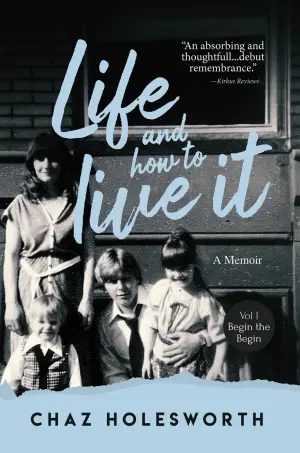Clichés are phrases or expressions that have become overly familiar due to repeated use, stripping away their originality and impact. They are time-worn ideas that can sap creativity and fail to engage readers. Using clichés can make your writing feel stale or uninspired, ultimately discouraging the audience from connecting with your message.
So, what is a cliché in writing? It is a storyline, character, or description that is predictable and lacking in novel expression. It’s the “same old, same old,” failing to evoke the unique voice that fresh writing should provide.
Table of Contents
The Problem with Clichés
Clichés can sneak into our writing, often unnoticed, and they can derail even the most promising drafts. In a world filled with diverse thoughts and views, relying on clichés can signal to your readers that you aren’t bringing anything new to the table. When you use a cliché, it can feel like you’re giving up on finding the perfect word or phrase to convey your thoughts.
Imagine you’re reading a romance novel that describes the female protagonist as having “eyes like the ocean.” This description has appeared countless times; it brings no new insight into her character. An original description could evoke her unique qualities or personal experiences tied to her eyes instead.
Examples of Clichés
Let’s explore some typical clichés found in writing:
1. Love and Relationships
When it comes to love, phrases like “love at first sight” or “my heart skipped a beat” often appear. These expressions are so overused that they make readers roll their eyes rather than feel the emotion.
Instead of “love at first sight,” imagine a character recounting how the smell of fresh coffee reminded her of summer mornings spent with her grandmother, leading her to a deep but unexpected connection with someone new. This transformation of an old concept into something fresh makes it more relatable and engaging.
2. The Hero’s Journey
Common phrases like “the calm before the storm” or “the hero’s journey” have been so widely used that readers may find them dull. The hero’s journey is a storytelling archetype; however, spinning this concept in a new direction can breathe life into the tale.
For instance, instead of the generic “hero rises against all odds,” consider a character who is the villain but finds himself at a moral crossroads. This alternative presents a twist that keeps readers intrigued without falling into predictable territory.
3. Overused Settings
Have you ever read about a “stormy night” where something sinister occurs? This image has worn itself into the ground. Rather than utilizing that imagery, why not describe a serene, moonlit night where dark secrets unravel quietly over a cup of tea? This approach cuts out the cliché and offers readers a vivid and unexpected scenario.
The Impact of Clichés on Readers
When a reader encounters clichés, they disengage. A repetitive phrasing has the power to distract from your main message. Your work can unintentionally become just another book in a sea of sameness.
For example, consider a thriller that opines, “Everyone has secrets.” This statement is not profound; it’s a common understanding. If, instead, the thriller showcases a character hiding something trivial that snowballs into a monumental lie, it adds depth and intrigue.
1. Reader Expectations
Readers today crave authenticity, and when clichés flood them, it leads to a sense of frustration. Their anticipation for something new crumbles when encountering overused plot devices.
Imagine reading a mystery novel that features a “detective with a troubled past.” This character type is so common that readers can guess nearly every possible outcome from the start. Providing a detective who uses humor as a defense mechanism can enrich their personality and strengthen the narrative.
2. Trust and Engagement
When your writing relies on fresh, original ideas, readers are more likely to trust your voice. They’ll find content that resonates with their experiences, thus creating a stronger connection to your writing.
If you describe an argument between friends as a “friendly feud,” you’re missing an opportunity to explore the emotional intricacies. Instead, conveying their very personal conflicts with unique, evocative dialogue establishes an emotional tie to your characters while avoiding cliché.
The Common Clichés to Avoid
Every genre has its own set of clichés. Understanding these can help writers steer away from trampled grounds.
In Romance
- “Opposites attract”: This phrase appears frequently in love stories, suggesting that two people with contrasting traits will find love. A more unique take could involve exploring the nuances of shared interests and values that draw characters together.
- “Love at first sight”: While this concept is common in fairy tales, modern storytelling often explores the complexity of relationships. Crafting a more realistic depiction of how relationships unfold over time opens up a richer narrative.
In Mystery and Thriller
- “The butler did it”: A tired trope in the whodunit genre. Instead of relying on this classic line, writers should build unique scenarios and characters that keep readers guessing until the very end.
- “Red herrings”: Although it refers to misleading clues, it has become so often used that it now sounds routine. Challenge yourself to come up with creative twists that captivate the audience without resorting to this common phrase.
How to Avoid Clichés
When crafting your narrative, aim to ensure that your writing is fresh and still shares your ideas effectively.
1. Identify Common Clichés
A good first step is to familiarize yourself with the most commonly used clichés in your genre. Keep a running list. Check how other authors bypass these tropes with skill.
For instance, if you’re writing a fantasy novel, you might find clichés surrounding dragons or quests. Instead of exploring a character who “wakes from a long sleep” to save the world, think about a world where the dragons have been living peacefully, and the main character must convince them to fight for humanity.
2. Use Original Language
Once you identify the clichés, focus on rewriting these phrases using your voice. Consider using specific details that relate to your character’s experiences. Instead of saying, “the world was his oyster,” structure a more vivid description revealing his dreams or aspirations tied to his past.
3. Experiment with Different Perspectives
Don’t hesitate to bend traditional paradigms in storytelling. Try writing from unexpected viewpoints or using narrative styles that straddle genres. For example, telling a ghost story through the advice of the ghost rather than the terrified main character can lead to an intriguing and fresh approach to a standard tale.
The Role of Editing
Even seasoned authors can overlook clichés in their work. That is where effective editing becomes crucial. Engaging a fresh set of eyes can point out cheesy phrases or tropes that make your writing appear less original.
1. Peer Reviews
Organizing peer review sessions can be an invaluable tool. Allow fellow writers or beta readers to point out clichés and suggest alternatives.
2. Trust Your Editors
Professional editors have an eye for identifying clichés. If you find an editor deeply invested in the craft, they can guide you toward producing original, compelling content.
The Fine Line of Inspiration vs. Cliché
While inspiration is beneficial, there is a precarious balance between drawing from existing ideas and falling into the cliché trap.
1. Reimagining Themes
It’s okay to explore common themes such as love, good versus evil, and the search for identity. However, fresh angles make these worn ideas unique. For example, instead of portraying a typical love triangle, create a scenario where characters are all invested in their careers, leading to genuine friendships and deep bonds that inherently challenge the romantic trope.
2. Cultural References
When you blend contemporary cultural references, you can avoid generalized expressions. Such an act could mean referencing a trendy music genre or internet meme instead of an old metaphor. Keep your reference relevant and clear for readers who may not understand it.
The Importance of Unique Characters
Characters who emulate predictable attributes can quickly become forgettable. Crafting characters with unique traits and backgrounds can eliminate clichés associated with character type.
1. Developing Depth
Instead of creating a flawed hero saddled with tropes, build multidimensional characters. Perhaps your hero is a technology wizard, struggling to communicate in personal relationships. Focusing on intricate personality layers enhances engagement and makes a character memorable.
2. Realistic Relationships
Too often, character dynamics fall into stereotypical proportions, such as the best friend who is always comic relief. Instead, design characters who surprise each other and grow with every interaction. Doing so prevents complacent, predictable character development and offers a refreshing new take.
Additional Information
Clichés often slip into writing without the author even noticing. Here are some lesser-known truths about clichés that can help you avoid them.
- Expected Phrases: Clichés arise from phrases that have appeared so often that their meanings have become diluted. It’s not just about being overused; it’s about losing the emotional impact and the weight of the words.
- Cliché Categories: Clichés can fall into several types, including oxymorons, idioms, and metaphors. Each type has its pitfalls and merits, but they all risk sounding stale in new writing.
- Context Matters: A phrase may be a cliché in one context but can be fresh and relevant in another. If you are referencing a common experience that resonates with your audience, it might serve a purpose.
- Cultural References: Some clichés connect to specific cultural moments or media. What might be a tired expression in one culture could still be effective in another, but it’s best to be aware of those differences.
- Awareness Levels: Many writers believe they can spot a cliché in their work, but often they can’t. It helps to read your writing aloud or have someone else critique it to catch those sneaky phrases.
- Evolving Language: Language is ever-changing, meaning certain expressions may shift from cliché to acceptable, depending on their current usage in popular culture. Stay updated on language trends to avoid outdated expressions.
- Unique Alternatives: Developing fresh phrases often requires stepping outside of your comfort zone. A good way to cultivate originality is through brainstorming sessions or free writing, allowing ideas to flow without judgment.
- Combining Ideas: Sometimes, mixing two clichés can create a humorous or poignant effect, known as a “cliché mash-up.” However, this trick needs careful handling to avoid confusion.
- Impact on Readers: Over-reliance on clichés can disengage readers, as they often seek originality when reading. Keeping your language fresh helps maintain engagement and establishes your unique voice.
- Historical Roots: Many clichés have deep historical roots that can surprise writers. Understanding the origin of a cliché helps in deciding whether to keep or discard it based on its current contextual relevance.
Frequently Asked Questions (FAQs) Related to What Is A Cliche In Writing
Q. What is a cliché in writing?
A. A cliché is an expression, idea, or phrase that has appeared too often to the point that it lacks originality and impact.
Q. Why should writers avoid clichés?
A. Writers should avoid clichés because they can make writing feel unoriginal and lazy, leading to disinterest from readers.
Q. How can I identify clichés in my writing?
A. You can identify clichés by looking for common phrases or ideas that show up again and again in literature. Reading widely can also help you spot overused expressions.
Q. Can clichés ever be used effectively?
A. Yes, clichés can serve for humorous effect or to convey familiarity, but they should be used sparingly and with purpose.
Q. What are some common examples of clichés?
A. Some popular clichés include “time heals all wounds,” “at the end of the day,” and “easy as pie.”
Q. What’s the difference between a trope and a cliché?
A. A trope is a commonly used theme or device in storytelling, while a cliché is a specific expression or phrase that has become stale through overuse.
Q. How can I replace clichés in my writing?
A. You can replace clichés by searching for fresh, unique phrases or by creating metaphors that better fit your context.
Q. Are there genres where clichés are more acceptable?
A. Yes, in genres like romance or certain thrillers, clichés might be more accepted due to reader expectations, but writers should handle them wisely.
Q. Can a reader recognize a cliché immediately?
A. Many readers can recognize clichés instantly, especially if they are avid readers or writers themselves. Clichés can pull them out of the story.
Q. How does using clichés affect a reader’s experience?
A. Using clichés can make the reader feel disconnected or bored, as they may find the writing predictable and uninspired.
Conclusion
Clichés in writing can weaken your work and make it feel stale. By identifying and avoiding these overused phrases and ideas, you can breathe new life into your writing. Strive for originality and authenticity to keep your readers engaged. Remember, unique expressions and fresh perspectives will always resonate more than tired clichés. Your goal is to make your voice distinct so that your writing stands out in a sea of sameness.







